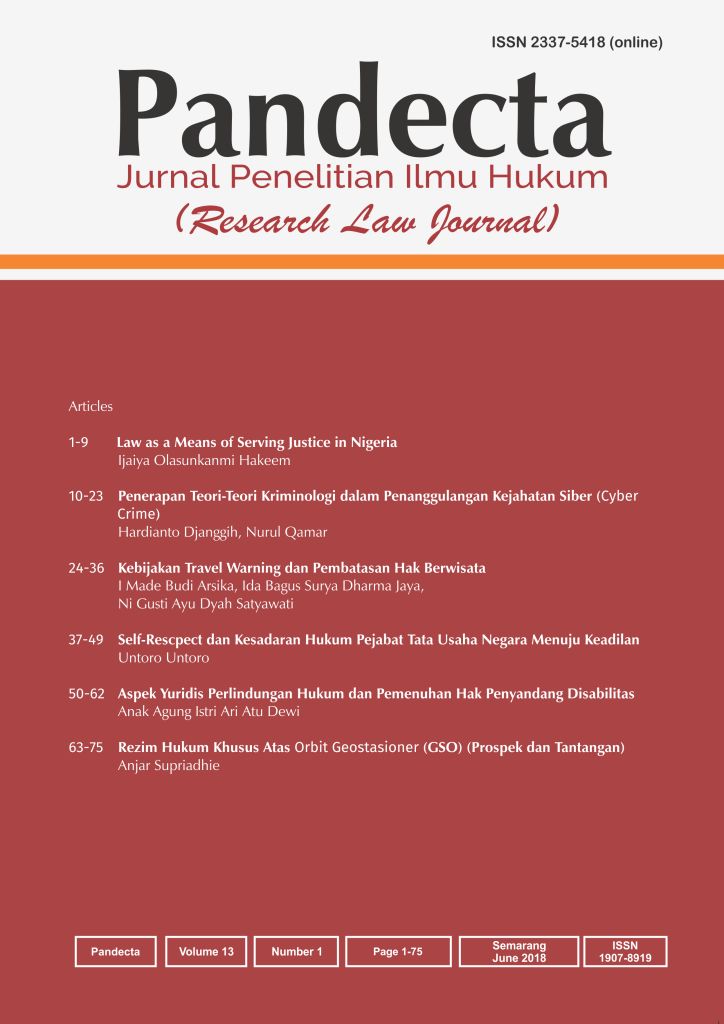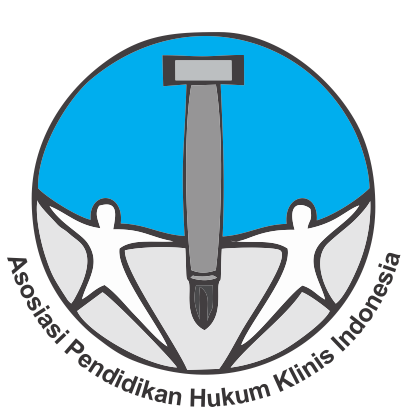Rekonstruksi Kebijakan Reklamasi Pantai yang Berkeadilan Sosial di Indonesia
(1) Diponegoro University
(2) Diponegoro University
Abstract
The potential of coastal reclamation land in Indonesia is done by multiplying natural resources and human resources for coastal management for the welfare of the surrounding community. Since the enactment of Law Number 32 Year 2014 concerning Regional Government, the authority of the sea and the coast has become the authority of the Provincial Government, so that the authority and supervision of the regional government is reduced. This is very influential for the lives of coastal communities.
The aim of the study was to determine the potential of coastal reclamation land in Indonesia that is sustainable and to reconstruct a fair coastal reclamation policy. This research can broadly be grouped into the realm of the Social Legal approach. In this case there are two aspects of research, namely the legal research aspect, namely the object of research that still exists in the form of law in the sense of “norm†and social research, namely the use of methods and theories of social science theory about law.
Based on the results of the study that the potential of coastal reclamation land is mostly for business development and tourist areas for the welfare of the surrounding community. Reconstruction of the coastal justice social reclamation policy in Indonesia is done by reconstructing the value of policies in the form of policy that involves the community genuinely and reconstructing the prevailing legal policy regulations.
Keywords
Full Text:
PDFReferences
Alwasilah, C. (2002). Pokoknya Kualitatif : Dasar dasar Merancang dan Melakukan Penelitian Kualitatif, Pustaka Jaya.
Asiyah, S. (2015).Analisis Perubahan Pemukiman dan Karasteristik Pemukiman Kumuh Akibat Abrasi dan Inundasi di Pesisir Kecamatan Sayung Kabupaten Demak Tahun 2003-2013, Jurnal GeoEco,1 (1), 84.
Harsono, B. (2002). Hukum Agraria Indonesia, Djambatan.
Karnawati. (2007). Mekanisme Gerakan Massa Batuan Akibat Gempabumi, Tinjauan dan Analisis Geologi Teknik, Jurnal Dinamika Teknik Sipil, 7 (2), 179-190.
Ni’am. (2005). Menuju Harmonisasi Sistem hukum Sebagai Pilar Pengelolaan Wilayah Pesisir Indonesia, Alumni.
Mertokusumo, S. (1996). Penemuan H u k u m S e b u a h P e n g a n t a r, Liberty.
Muhardjir, N. (2002). Metodologi Penelitian Kualitatif, Rake Sarasin.
Rahardjo, S. (2006). Membedah Hukum Progresif, Buku Kompas.
Retnowati, E. (2011). Nelayan Indonesia dalam Pusaran kemiskinan Struktural, Jurnal Perpektif, XVI (3), 195.
Santi, G. (2019). Penolakan Masyarakat Terhadap Reklamasi Telok Benoa Provinsi Bali, Jurnal Diponegoro Private Law Review,4(1), 393.
Ruslin, I. (2017). Subaltern Dan Kebijakan Pembangunan Reklamasi
Pantai Di Kota Makasar, Jurnal Politik Profetik, 5 (2), 189.
Suganda, E. Yatmo,Y.A. & Atmodiwirjo, P. (2009). Pengelolaan Lingkungan dan kondisi Masyarakat Pada Wilayah Hilir Sungai, Jurnal Makara, Sosial
Humaniora, 13(2),143-153.
Sunarto.(2000). Kausalitas dan Equilibirium Dinamik sebagai Paradigma
Pengelolaan Ekosistem Pesisir, Prosiding Makalah Penunjang dalan Seminar Nasional Pengelolaan Ekosistem Pantai dan Pulau-Pulau Kecil dalam Konteks Negara kepulauan, 2 September 2000, Badan Penerbit Fak. Geografi UGM.
Soeratno dan Arsyad,Lincoln.(1993).Metodologi Penelitian untuk Ekonomi dan Bisnis, Unit Penerbitan dan Percetakan APMP YKPN.
Yulianti, R. (2015). Urgensi Pengaturan Reklamasi Pantai Di Wilayah Pesisir Selatan Madura, Jurnal Yustisia ,4 (1), 119.
Zamroni. (1992). Pengembangan Pengantar Teori Sosial, Tiara Yogya.


